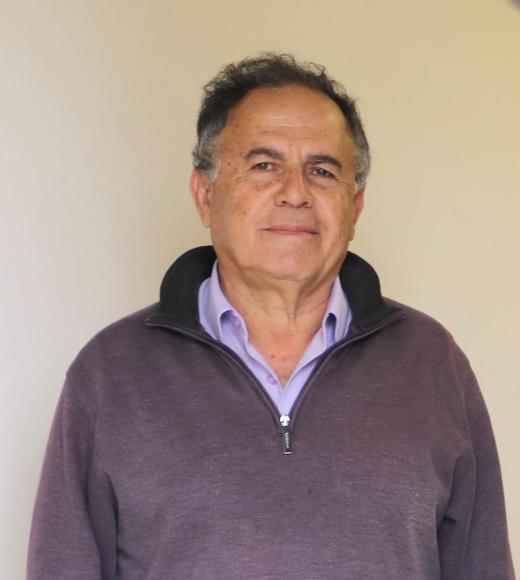
Position Title
Melvin D. Androus Endowed Professor for Weed Science
- Faculty
UC Davis, One Shields Ave, Davis CA 95616
Education:
- Ph.D., Kansas State University; Crop Physiology, 1984
Research interests and expertise:
The primary research goal is to apply expertise and leadership in weed science and plant physiology/ecology for the advancement of both applied and fundamental aspects of weed science. Among others, my research program works toward:
- Develop knowledge on weed biology and weedñrice competition
- Understand the physiological and biochemical mechanisms of herbicide resistance in key weeds of rice and develop management practices to prevent and manage weed resistance in rice
- Improve and optimize weed management programs in rice
- Reduce off-target herbicide movement and study the effect of herbicide drift on non-target plants
Current projects:
- Integrated weed management in California rice (California Rice Research Board)
- Biology of weedy rice in California (California Research Board)
- Biology and spread of aquatic weeds associated with agriculture water supply (USDA/NIFA)
- Biology of herbicide resistant weeds in rice (Rice Research Board)
- Off-target herbicide movement
Current teaching:
- Introduction to Weed Science; PLS 176. It covers most aspects of modern weed science and invasive weeds, emphasizing on concepts, while providing also substantial information for real life weed control.
- Concepts in Pest Management; PLS 105. The course encompasses the ecological principles of integrated pest management, the biology of different classes of pests (insects, weeds, plant pathogens, vertebrates) and the types of losses they cause. The course introduces the principles of monitoring and population assessment, review of the different techniques used for pest management including biological, cultural and chemical controls, and how to implement IPM programs in the field. Laboratories emphasize hands-on activities to familiarize students with pest identification and IPM techniques.
- Physiology of Herbicidal Action; PBI 212, graduate-level course. The course examines plant physiology through in-depth study of the mode of action and fate of herbicides and discusses environmental implications of herbicide use.
Outreach and Extension:
My extension program has been mainly focusing on weed management in rice and other agronomic crops. The program reaches front-line weed managers. My program has direct contact with natural extenders of weed management information who can multiply my efforts to reach the front-line managers. The specific goals of my weed management program is to reduce risks of weeds and weed management related strategies. My efforts coordinate the use of weed biology, environmental information, and available technology to prevent unacceptable levels of weed damage by the most economical means, while posing the least possible risk to people, and the environment. Herbicides are important components of any program to manage weeds. However, off-target herbicide movement may cause plant and environmental damage. My extension efforts are also focused on safe application of herbicides by using modern spray technology and understand the physical and environmental factors that contribute to off-target movement.
External activities that contribute to scholarship:
- Co-Director, Western IPM Center, University of California
- Director, University of California Weed Information Center
- Western Region Invasive Species Signature Projects, Chair
- Weed Working Group, Member
- Horticulture and Agronomy Graduate Group, Member
- International Agricultural Development Graduate Group
- College of Agriculture International Committee, Member
- Weed Science Society of America, Herbicide Resistance Committee, Member
- California Rice Research Board, Redrice Taskforce, Member
- Weed Science Society of America ñ Research Committee, Member
- Western Society of Weed Science ñ Fellow Award Committee, Chair
- Western Society of Weed Science Educational committee, Member
Prizes, Awards, Honors
- Achievement Award, California Weed Science Society, 2018
- Fulbright research award, U.S. Department of State, 2015
- Weed Science Outstand Paper Award, Weed Science Society of America, 2012
- Fellow Award, Weed Science Society of America, 2010
- Fellow Award, Western Society of Weed Science, 2009
- Fellow Award, American Society of Agronomy, 2008
- Fellow Award, North Central Weed Science Society, 2008
- Education Materials Award, Glyphosate Stewardship Publication, 2007; American Society of Agronomy
- Outstanding Research Award, Gamma Sigma Delta, Kansas State University, 2006
- Outstanding Weed Scientist, Western Society of Weed Science, 2005
- Distinguished Achievement Award for Research, North Central Weed Science Society, 2001
- Education Materials Award, Development of Outstanding Educational Materials, American Society of Agronomy, 2001.
- Achievement Award, Washington State Weed Association, 1996
- Sigma Xi
- Gamma Sigma Delta
- Phi Kappa Phi
Keywords related to your work
- Weed science
- Herbicide resistance
- Integrated weed management
- Rice weed management
- Herbicide drift
- Off-target herbicide movement
- Herbicide mode of action
- Herbicide physiology
- Herbicide symptomology
- Herbicide tolerant crops
- Weed physiology
- Herbicide damage
